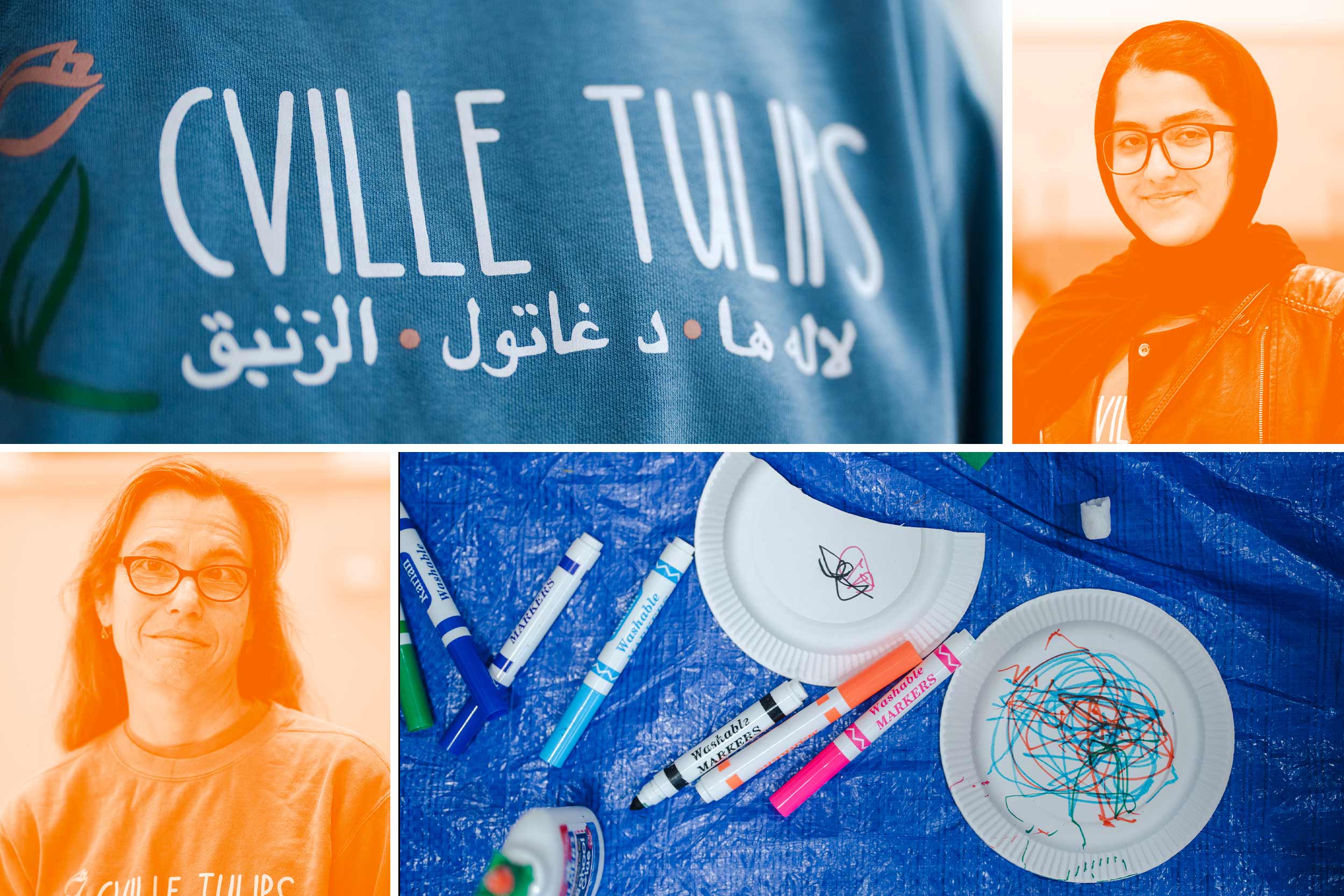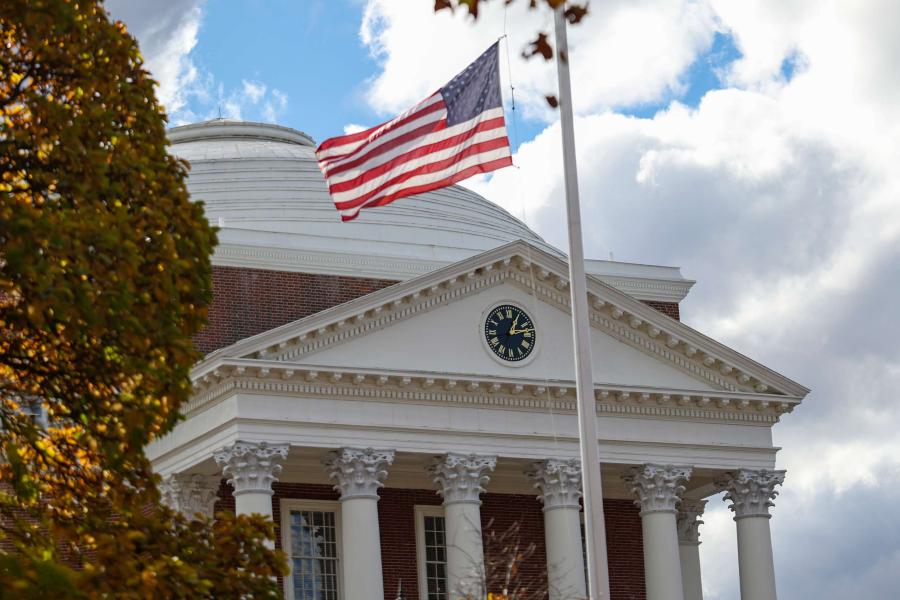Most Sunday afternoons, the sounds of children laughing, chatting and running around ricochet off the walls of the Peabody School’s gymnasium. The kids aren’t students there, but rather participants of Cville Tulips, a community engagement project that provides art, English and health classes for refugee women and children in the Charlottesville area.
The Tulips were named for Afghanistan's national flower, which also serves as a symbol of women and resilience in the Middle East.
Bonnie Gordon, a music professor at the University of Virginia, and Marjan Omranian, who received her master’s degree in education from UVA earlier this year, founded the organization in the spring of 2022.
At the time, Omranian had recently immigrated to the United States from Iran, where she had worked with Afghan refugee children, to join her husband, who was enrolled in a doctoral program. Her arrival coincided with the humanitarian crisis following the Taliban takeover in Afghanistan.
“Seeing these families on the streets and in my English classes, I felt compelled to help the newly arrived families,” she said. “I understood some of their challenges as a newcomer from a similar cultural background.”
In her English-language classes, women she met helped her understand the unmet needs in their communities, like school shoes for children who were recently enrolled. So, the first thing Cville Tulips did once it got funding was to rent a bus and take the women to the Ragged Mountain Running Shop to buy shoes.
“Resettlement agencies focus on self-sufficiency for families and schools focus on enrolling children, so women can be left out of the equation,” Gordon said.
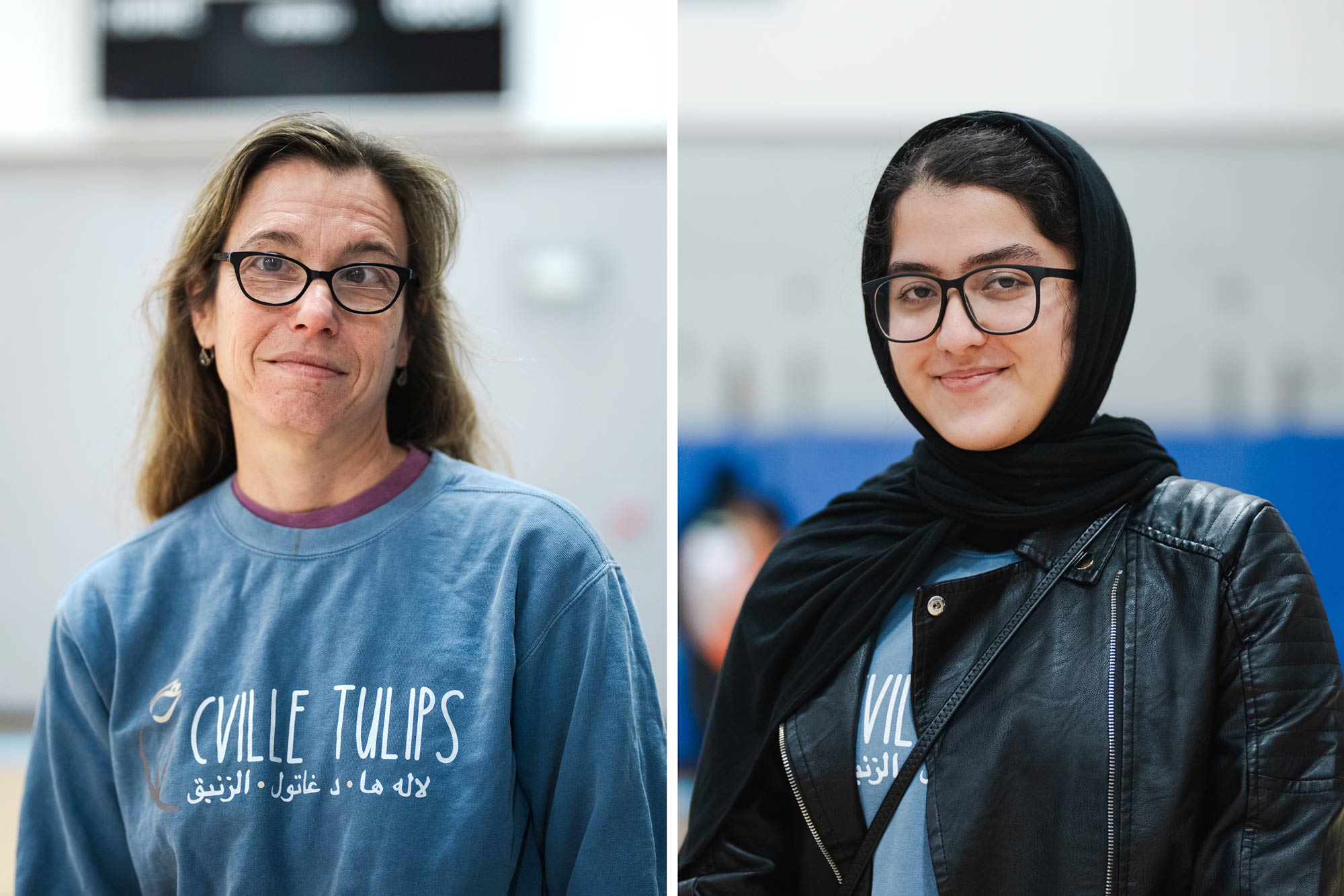
Music professor Bonnie Gordon, left, co-founded Tulips in the spring of 2022. UVA second-year student Samman Akbarzada works as a teacher’s aide and translator. (Illustration by John DiJulio, University Communications)
Since then, the program has expanded, typically serving between 100 and 150 women and children a week at the Peabody School. Elizabeth Wittner now supervises 35 volunteers and five to 10 English instructors.
Early on, the women told organizers they wanted opportunities to learn English and were struggling to arrange child care. The organization began offering English classes for the women and arts programming for the children so the moms could focus on learning.
“Most of these families come from the rural parts of Afghanistan with little or no education,” Omranian said. “For some of the women, our English classes are their first time sitting in a classroom and have education.”
When the women began asking questions about their and their children’s health, the program grew to provide health education through a collaboration with UVA’s International Family Medicine. Dr. Fern Hauck, the clinic’s founder, leads a team of 15 physicians, residents and medical students from the UVA School of Medicine who provide basic human sciences education and information about how to navigate the health system.
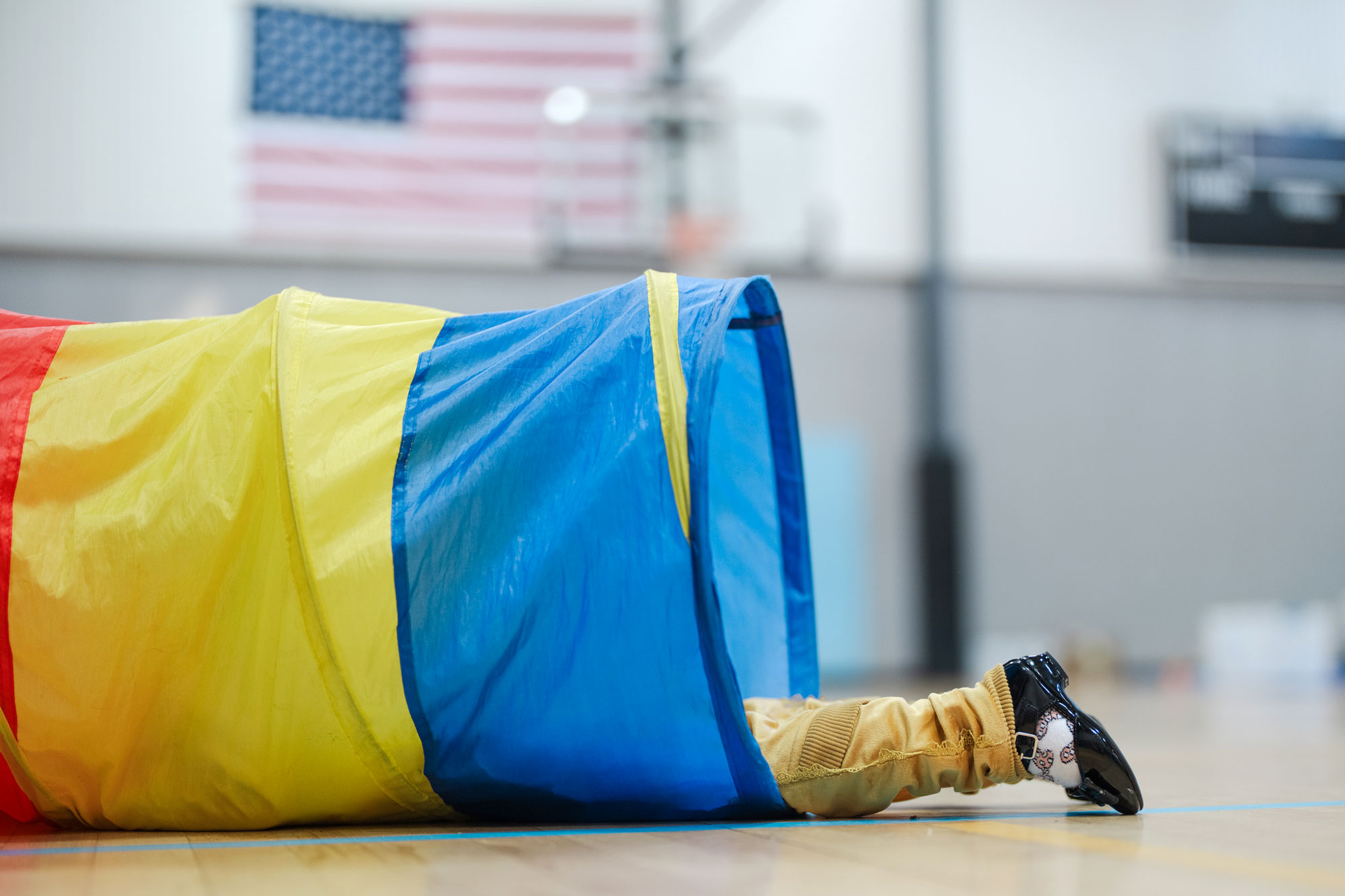
Every Sunday, kids play and socialize in the Peabody School gymnasium. (Photo by Emily Faith Morgan, University Communications)
While the women separate into classrooms, undergraduate volunteers – like Samman Akbarzada, a UVA second-year student and Afghan refugee – oversee the children playing and coloring in the gymnasium.
When Akbarzada left Afghanistan for Rwanda with her mother and siblings, she had only five hours to pack her belongings. Her father, who was experiencing passport issues, couldn’t join them.
After nine months in Kigali, Rwanda’s capital, her family moved to the United States. Three months after their arrival, their mother died and Samman found herself the legal guardian of her two younger siblings.
“I was sleep-walking through life at the time, grieving my mom and caring for my siblings,” she said. “Then I received my acceptance letter to UVA, and it felt like a wakeup call. I had completely forgotten that I’d even applied.”
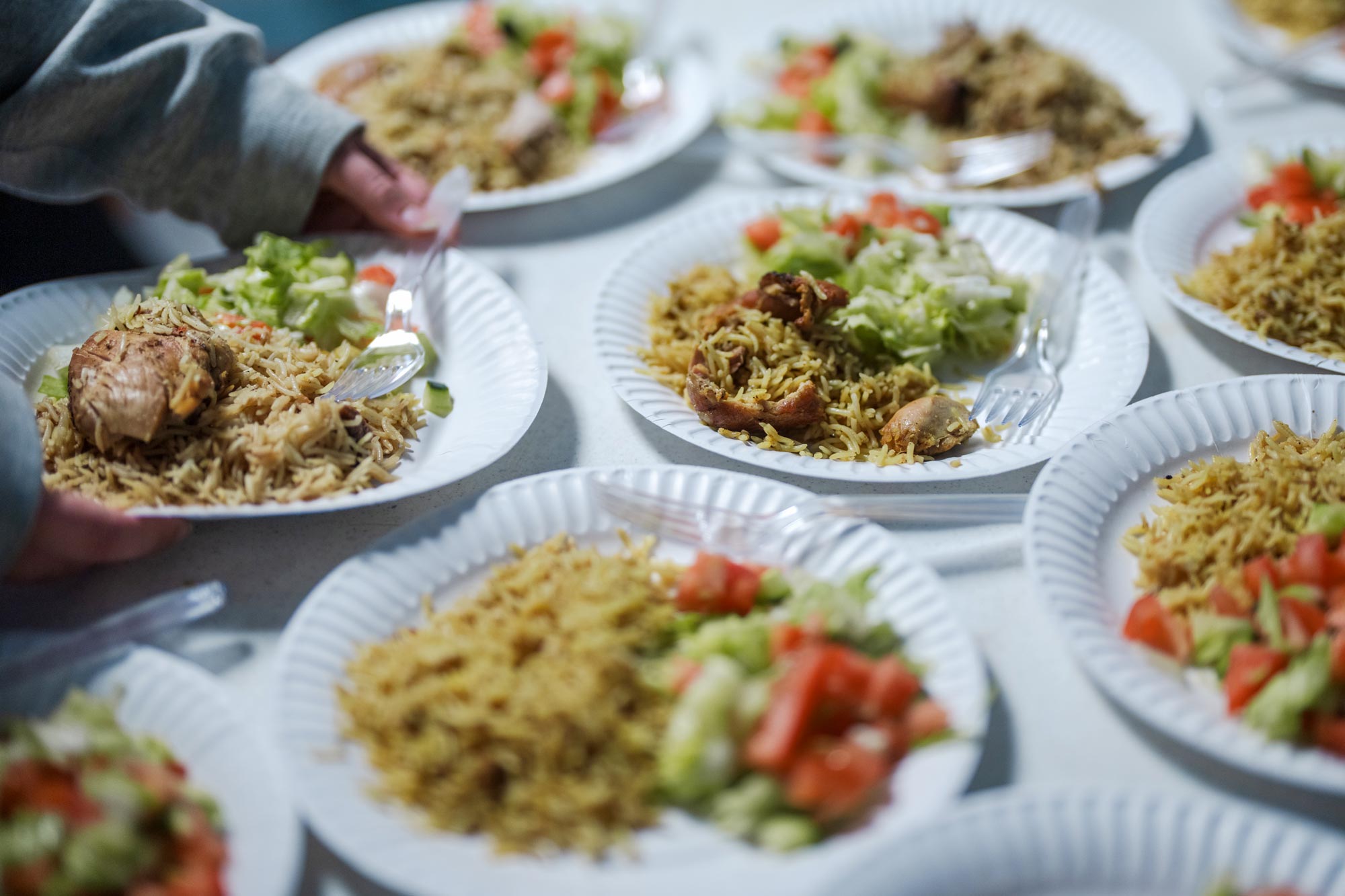
Participants and volunteers enjoy meals together. (Photo by Emily Faith Morgan, University Communications)
Akbarzada is now a second-year student interested in double-majoring in English literature and political philosophy, policy and law. She has been a lifelong writer and author of two books. Last year, her father was finally able to join her and her siblings in Charlottesville, reuniting the family.
She discovered Cville Tulips when she met Gordon at Charlottesville High School, where she was invited to read poetry. Hearing women speak Persian on the bus that first day, she said, made her heart skip a beat.
“I looked up and saw a bus full of aunties dressed in traditional clothes, laughing, joking and asking me to sit beside them, sharing their motherly love. I felt like I was home again,” she said. “Two weeks into the program, I found myself wearing the Cville Tulips shirt, holding a woman’s hand as she wrote her name in English on the board, and carrying another auntie’s baby.”
Akbarzada helps women in English classes and health education classes, working as an interpreter and teacher’s aide. She said her and her siblings struggled being in a new environment away from home and friends, but they fared better because they knew English.
